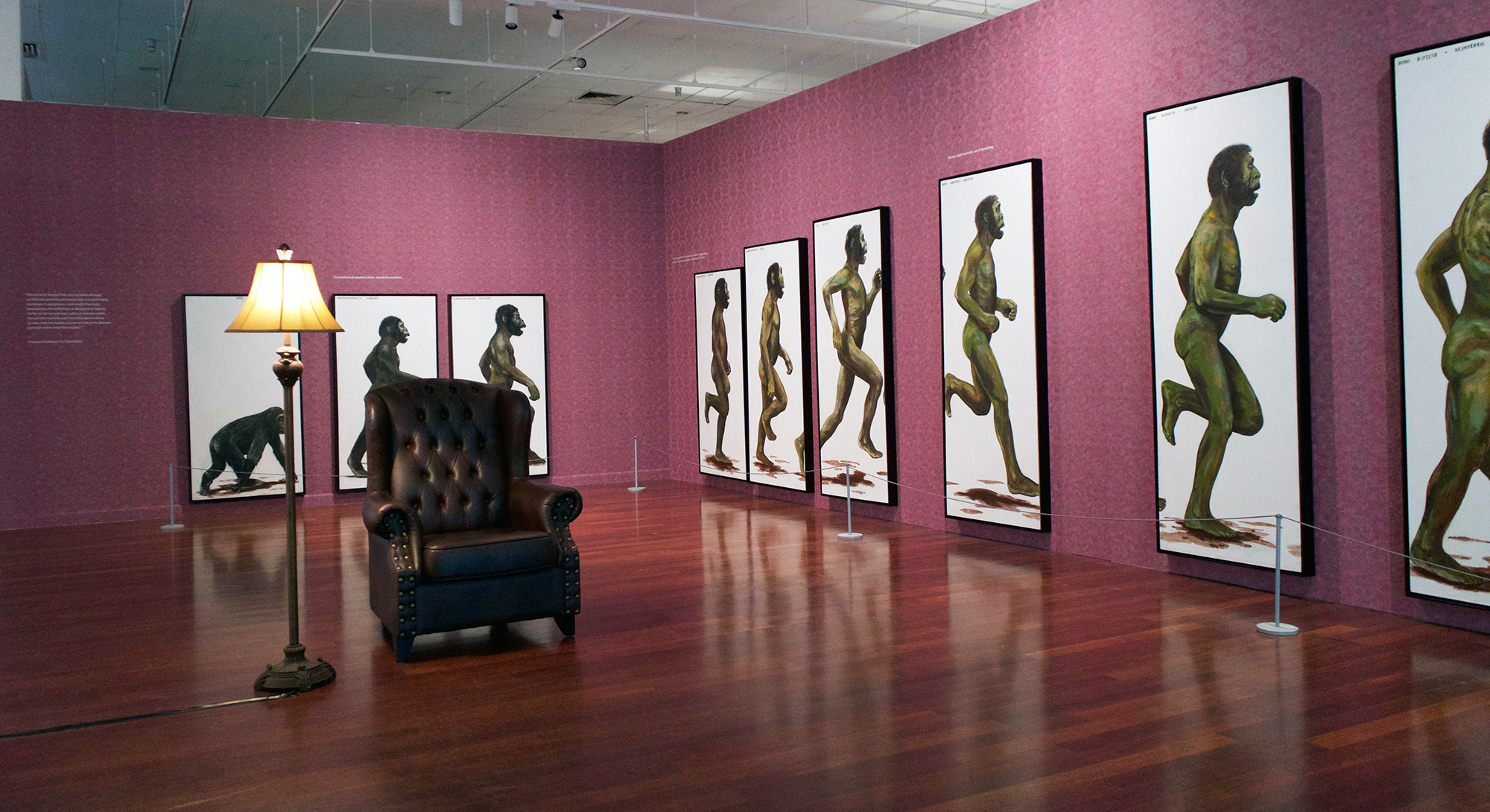Shows
Ahmad Fuad Osman’s “At the End of the Day Even Art Is Not Important (1990–2019)”


“At the End of the Day Even Art Is Not Important,” the title of Ahmad Fuad Osman’s midcareer survey at Malaysia’s National Art Gallery, reflected his belief in art as first and foremost a public platform to address urgent sociopolitical topics. The exhibition of over 60 works was a brave undertaking by the institution, and one perhaps only deemed possible after 2018’s ushering in of a new government with a stated commitment to greater freedom. Ahmad Fuad is one of Malaysian society’s least daunted critics, and his output over the past three decades has been complex, spanning painting, installation, performance, video, and text. Guest curator Shabbir Hussain Mustafa of the National Gallery Singapore carefully unpacked the artist’s practice into what he termed seven “cycles of research,” representing the different entry points from which Ahmad Fuad has explored the Malay Archipelago and its “manifold realities.”

An early interest in primitivism and angsty self-portrait-based paintings gave way to heightened political engagement and forays into different kinds of media from 1998, the year deputy prime minister Anwar Ibrahim was sacked for sexual misconduct amid investigations into charges of sodomy and corruption, ushering in the Malaysian Reformasi movement. This tumultuous period was the basis of the exhibition’s central section, “Malay(sian) Dilemma.” Here, giant canvases depict the artist variously putting his finger to his lips, putting his hands to his ears with his eyes squeezed shut, and holding his nose, expressing the visceral personal and collective disgust at the noise and misinformation surrounding Anwar’s sacking. These flanked Untitled (2012), a section of wall covered with Hilang (missing) posters featuring a 1998 portrait the artist had painted of Anwar with a black eye—an infamous image of the politician taken after he was beaten by the Inspector General of the Police while chained to a bed when held in custody—offering a cash reward for information. This project was a ruse by the artist to “investigate the psyche of the Malaysian public” through the responses received following Anwar’s acquittal of a second sodomy charge. The politician’s assault was alluded to via the four-poster bed with blood-stained sheets in the installation Malay(sian) Dilemma (1998/2019).
Wider injustices in Malaysia were explored in the section “Love at First Bite,” named after Ahmad Fuad’s 2009 installation featuring A4 printouts of a news story about Donni John, an 11-year-old boy from Sabah who committed suicide in 2007 to ease the burden of his impoverished family. This is read against Mr. D’s Last Meal (2003), an installation of 11 life-size paintings based on March of Progress illustrations of human evolution; a wing chair; video; and text. These stem from Ahmad Fuad’s research on The Lunar Society of Birmingham (1765–1813), a circle of British industrialists, natural theorists, and intellectuals who lobbied to initiate population control programs in British India, generating in this work an uneasy conversation about the colonial project, social design, science, capitalism, and the tragic realities of human experience.

Questions of the ownership and transmission of knowledge arose throughout the exhibition. This thrust culminated in Ahmad Fuad’s Enrique de Malacca Memorial Project (2016/19– ), a tribute to explorer Ferdinand Magellan’s slave, translator, and guide to the Malay Archipelago. Taking the form of a museum display with over 80 exhibits including reproduced historical documents, collected objects, costumes, painted portraits in astonishingly convincing period style, video interviews, and a scaled reproduction of Magellan’s ship, the Trinidad, the project pieces together from an alternative vantage point the story of a marginalized figure who not only may have been the first human to circumnavigate the globe (Magellan died on the journey) but who also facilitated an exchange of knowledge that helped set the course of history.
Three months into the show’s run, the Gallery removed four works, including Untitled (2012), citing complaints and asserting their right to take down art that “touches the dignity of any individuals, religion, politics, race, culture, and the country.” The exhibits in question presumably ruffled feathers due to their portrayals of political leaders, pigs (haram for a predominantly Muslim population), and a naked man. Following an outcry in the art community, as well as an informal recommendation by Muhammad Bakhtiar Wan Chik, Malaysia’s deputy tourism, arts, and culture minister, the works were reinstated. This act of censorship and its reversal served to underline the key message of the exhibition: that art's importance is as a public platform where different attitudes and forms of knowledge may be negotiated.
Beverly Yong is ArtAsiaPacific’s Kuala Lumpur desk editor.
Ahmad Fuad Osman’s “At the End of the Day Even Art Is Not Important” is on view at the National Art Gallery, Kuala Lumpur, until February 28, 2020.







